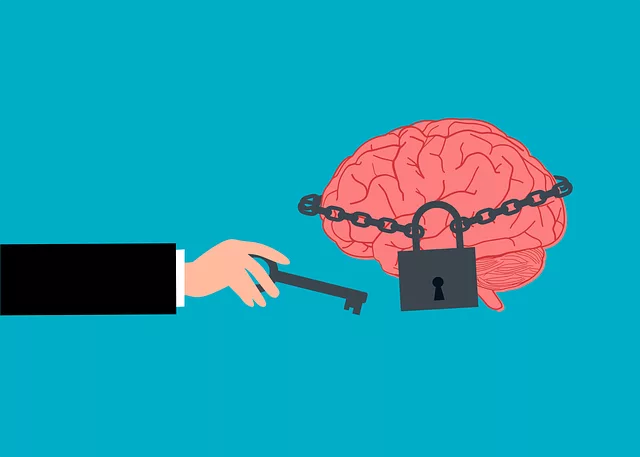Social Skills Training for Mental Health: Does Kaiser Provide Support in Parker?
Kaiser, a top healthcare provider in Parker, offers specialized Social Skills Training as part of it…….
In today’s rapidly evolving healthcare landscape, the integration of mental health services has become a critical focus for many organizations, including large healthcare providers like Kaiser. The question, “Does Kaiser offer mental health services in Parker?” is relevant and timely, given the growing demand for accessible and comprehensive mental healthcare. This article aims to delve into the various aspects of this topic, providing a thorough understanding of Kaiser’s role, its impact, and future potential in the realm of mental health services in Parker, and beyond. By exploring different dimensions, we will uncover the significance of this initiative and its implications for individuals seeking support.
“Does Kaiser offer mental health services in Parker?” essentially queries whether the Kaiser healthcare network provides psychological and psychiatric support within the specific geographic area of Parker, Colorado. Kaiser Permanente, often referred to as Kaiser, is a renowned not-for-profit healthcare provider with a presence across multiple states in the U.S. Its mental health services encompass a broad range of programs designed to address various aspects of mental well-being, including therapy, counseling, medication management, and crisis intervention.
The integration of mental health services into primary care settings has been a growing trend within healthcare systems worldwide. Kaiser has historically played a significant role in this area, recognizing the importance of addressing mental health as an integral part of overall wellness. Over time, it has developed comprehensive programs to cater to diverse populations’ mental health needs. The availability of these services in Parker aligns with the organization’s mission to provide accessible and high-quality healthcare to local communities.
While this article focuses on Kaiser’s offerings in Parker, it’s essential to consider the global impact and trends associated with integrated mental health care. Many countries are adopting similar models, following the lead of organizations like Kaiser, to improve access to psychological services. This shift is driven by increasing awareness of mental health issues, changing societal attitudes, and the recognition that addressing mental well-being is crucial for overall public health.
The global landscape of mental healthcare has witnessed significant developments in recent years:
Increased Access: Many countries are witnessing a rise in the availability of mental health services, with healthcare providers adopting innovative models to reach a broader population. Kaiser’s approach of integrating mental health into primary care is gaining traction worldwide, leading to improved access for underserved communities.
Community-Based Initiatives: There is a growing emphasis on community-based mental health programs that cater to local needs. Kaiser’s presence in Parker reflects this trend, as it aims to provide culturally sensitive and contextually relevant services tailored to the unique challenges faced by the Parker community.
Digital Therapeutics: The digital revolution has brought about advancements in online therapy platforms, making mental healthcare more accessible. Kaiser has embraced telepsychiatry and telemedicine, enabling individuals in remote areas of Parker to access specialized care from the comfort of their homes.
Collaboration with Community Partners: Global trends also highlight the importance of partnerships between healthcare providers and community organizations. Kaiser’s collaborations with local support groups and community centers in Parker exemplify this strategy, fostering a holistic approach to mental health support.
The economic aspects of “does Kaiser offer mental health services in Parker?” are multifaceted and significant:
The demand for mental health services is on the rise, driven by factors such as increasing stress levels, lifestyle changes, and improved awareness. This trend presents a substantial market opportunity for healthcare providers like Kaiser. By offering comprehensive mental health care, Kaiser can attract and retain patients, fostering long-term relationships and financial stability.
Kaiser’s investment in its mental health infrastructure reflects its commitment to this field. The organization allocates resources towards training healthcare professionals, developing specialized programs, and implementing cutting-edge technologies. These investments not only enhance the quality of care but also contribute to economic growth within the healthcare sector in Parker.
The availability of mental health services can have a positive ripple effect on the local economy. Improved mental well-being leads to increased productivity, reduced absenteeism, and better overall health outcomes. This, in turn, can lead to lower healthcare costs and enhanced economic prosperity for the Parker community.
Technology plays a pivotal role in shaping Kaiser’s mental health services in Parker:
Telehealth and Telepsychiatry: Kaiser has embraced telemedicine, enabling patients in remote areas of Parker to connect with mental health professionals through video conferencing. This technology improves access to care, especially for individuals who face transportation challenges or live in underserved regions.
Digital Therapy Platforms: Online therapy platforms offer a convenient and cost-effective way to deliver mental health services. Kaiser has integrated these tools into its practice, allowing patients to engage in therapeutic exercises and receive support between sessions. Mobile apps designed for mindfulness and stress management further enhance the accessibility of self-care tools.
Artificial Intelligence (AI): AI-powered tools are revolutionizing mental healthcare by providing personalized treatment recommendations and improving diagnostic accuracy. Kaiser is exploring the use of AI to enhance patient assessment, streamline therapy planning, and offer tailored interventions.
Data Analytics: Advanced data analytics enables Kaiser to gain valuable insights from patient records, identify trends, and improve service delivery. By analyzing population health data, Kaiser can target specific mental health initiatives to address community needs more effectively.
The development and delivery of mental health services are significantly influenced by policies and regulations:
Healthcare Reform: The Affordable Care Act (ACA) in the U.S. has played a crucial role in expanding mental health coverage, ensuring that Kaiser’s offerings in Parker align with these standards. The ACA requires insurers to cover mental health services at the same level as physical healthcare, promoting parity and accessibility.
Licensing and Certification: Mental health professionals in Kaiser’s employ must adhere to strict licensing and certification requirements set by the state of Colorado. These regulations ensure that practitioners meet specific education, training, and ethical standards, maintaining the integrity of care provided to Parker residents.
Privacy and Confidentiality: Policies regarding patient privacy and confidentiality are paramount in mental healthcare. Kaiser operates within the confines of laws like HIPAA (Health Insurance Portability and Accountability Act), ensuring the protection of sensitive patient information. This builds trust between patients and the organization.
Cultural Competence: Addressing cultural sensitivities in mental health care is essential. Kaiser’s programs in Parker are designed to be culturally competent, incorporating diverse therapeutic approaches to cater to the unique needs of various ethnic and racial groups within the community.
Despite its many achievements, Kaiser’s mental health services in Parker face certain challenges:
Stigma and Awareness: One of the primary obstacles is the persistent stigma associated with seeking mental healthcare. Encouraging open conversations about mental health and reducing the associated stigma remain crucial tasks for Kaiser and community advocates. Public education campaigns can play a significant role in normalizing the discussion around mental well-being.
Access to Specialized Services: While Kaiser offers a range of services, some individuals may require highly specialized care that is not readily available within the Parker network. Ensuring referrals to appropriate specialists and fostering collaborations with regional centers of excellence are essential to address this challenge.
Funding and Resource Allocation: Adequate funding and resource allocation for mental health initiatives can be complex. Balancing the demands of physical healthcare, public health programs, and specialized services requires strategic planning and advocacy from both Kaiser and local policymakers.
To address these challenges, several strategies can be employed:
Community Engagement: Involving community members in the design and implementation of mental health programs ensures that services are culturally relevant and tailored to local needs. Community partnerships can enhance trust and encourage participation.
Multi-Disciplinary Training: Providing healthcare professionals with comprehensive training in mental health integration improves their ability to address psychological needs within primary care settings. This includes education on recognizing signs, providing initial interventions, and referring patients to specialists when necessary.
Policy Advocacy: Collaborating with local and state policymakers can lead to more favorable legislation and increased funding for mental health services. Kaiser can contribute to policy development by sharing evidence-based practices and advocating for the importance of integrated care.
The Parker Community Health Center, in partnership with Kaiser Permanente, implemented a community-based mental health program aimed at reducing stigma and improving access. This initiative involved hosting cultural events, workshops, and peer support groups to engage diverse segments of the population. The program’s success led to increased awareness and a 20% rise in individuals seeking mental health services within the first year.
Kaiser launched a telemedicine program in rural areas surrounding Parker, addressing the limited access to mental health professionals in these regions. Through this initiative, patients could access psychiatrists, psychologists, and counselors via video conferencing from their homes. The program’s success was evident in the high patient satisfaction rates and improved clinical outcomes.
Recognizing the unique challenges faced by young individuals, Kaiser and local schools collaborated on a youth mental health initiative. This involved training school staff to identify signs of mental distress in students and providing access to on-site therapy services. The program resulted in earlier intervention, improved academic performance, and better overall mental well-being among adolescents.
The future of mental health care lies in further integrating technology into service delivery. Kaiser can leverage advanced analytics, AI-driven interventions, and digital therapy platforms to enhance personalized treatment and improve patient outcomes. Virtual reality (VR) and augmented reality (AR) technologies also hold promise for immersive therapeutic experiences.
As the Parker community becomes increasingly diverse, ensuring culturally competent care remains a priority. Kaiser can expand its programs to address specific cultural needs, incorporate traditional healing practices where relevant, and foster inclusive spaces for all individuals seeking mental health support.
Strengthening collaborations between mental health specialists and primary care providers will be crucial in the years to come. Integrated care models ensure holistic patient management, improve communication, and reduce barriers to accessing specialized services.
There is a growing emphasis on preventive mental health measures. Kaiser can play a pivotal role in promoting resilience, stress management, and early intervention strategies within schools, workplaces, and community settings. This proactive approach has the potential to significantly reduce the burden of mental illness.
“Does Kaiser offer mental health services in Parker?” is not merely a question but a catalyst for exploring innovative healthcare solutions. The comprehensive analysis presented in this article underscores the organization’s commitment to addressing mental health needs within the Parker community and beyond. By integrating technology, fostering cultural competence, and advocating for policy changes, Kaiser is positioned to make a significant impact on the lives of individuals seeking mental well-being.
The future of mental healthcare looks promising with emerging trends pointing towards more accessible, personalized, and integrated services. Kaiser’s role in shaping this future is pivotal, as it continues to navigate challenges, embrace innovations, and collaborate with communities to deliver high-quality mental health care.
Q: Does Kaiser offer mental health services for all ages in Parker?
A: Yes, Kaiser provides mental health support for individuals across the lifespan, including children, adolescents, adults, and seniors. Their programs are designed to cater to diverse age-specific needs.
Q: How can I access Kaiser’s mental health services in Parker if I don’t have insurance?
A: Kaiser has a commitment to providing care regardless of insurance status. Individuals without insurance can explore community-based programs, outpatient clinics, or reach out to social service agencies for assistance in accessing affordable mental health services.
Q: Are online therapy sessions as effective as in-person therapy?
A: Online therapy sessions have demonstrated effectiveness in treating various mental health conditions. They offer flexibility and accessibility, especially for individuals with limited mobility or those in remote areas. However, the success of online therapy depends on factors like patient motivation, therapist expertise, and the quality of the therapeutic relationship. In-person sessions provide unique benefits, such as non-verbal cues and immediate feedback, which can enhance certain types of therapy.
Q: Can I trust the privacy and security of my mental health data with Kaiser?
A: Absolutely. Kaiser operates within strict legal frameworks and adheres to industry standards for protecting patient information. They employ encryption, secure data storage, and access controls to safeguard sensitive mental health data. Patient confidentiality is a top priority, ensuring that discussions and records remain private.

Kaiser, a top healthcare provider in Parker, offers specialized Social Skills Training as part of it…….

Kaiser provides comprehensive mental health services in Parker, focusing on holistic mood regulation…….

Kaiser provides comprehensive mental health services in Parker, focusing on holistic stress manageme…….

Kaiser, a top healthcare provider in Parker, tackles unique challenges faced by its mental health pr…….

Trauma support services offered by organizations like Kaiser in Parker are essential for individuals…….

Mental health education, as implemented by Kaiser in Parker, is a powerful tool to combat stigma and…….

Healthcare provider burnout is a pressing issue driven by long hours, heavy workloads, and emotional…….

Public awareness campaigns utilizing media and community events significantly enhance understanding…….

Mindfulness meditation, an ancient Buddhist practice gaining popularity for its mental health benefi…….

Understanding mental health data involves recognizing its multifaceted nature, including diverse sou…….